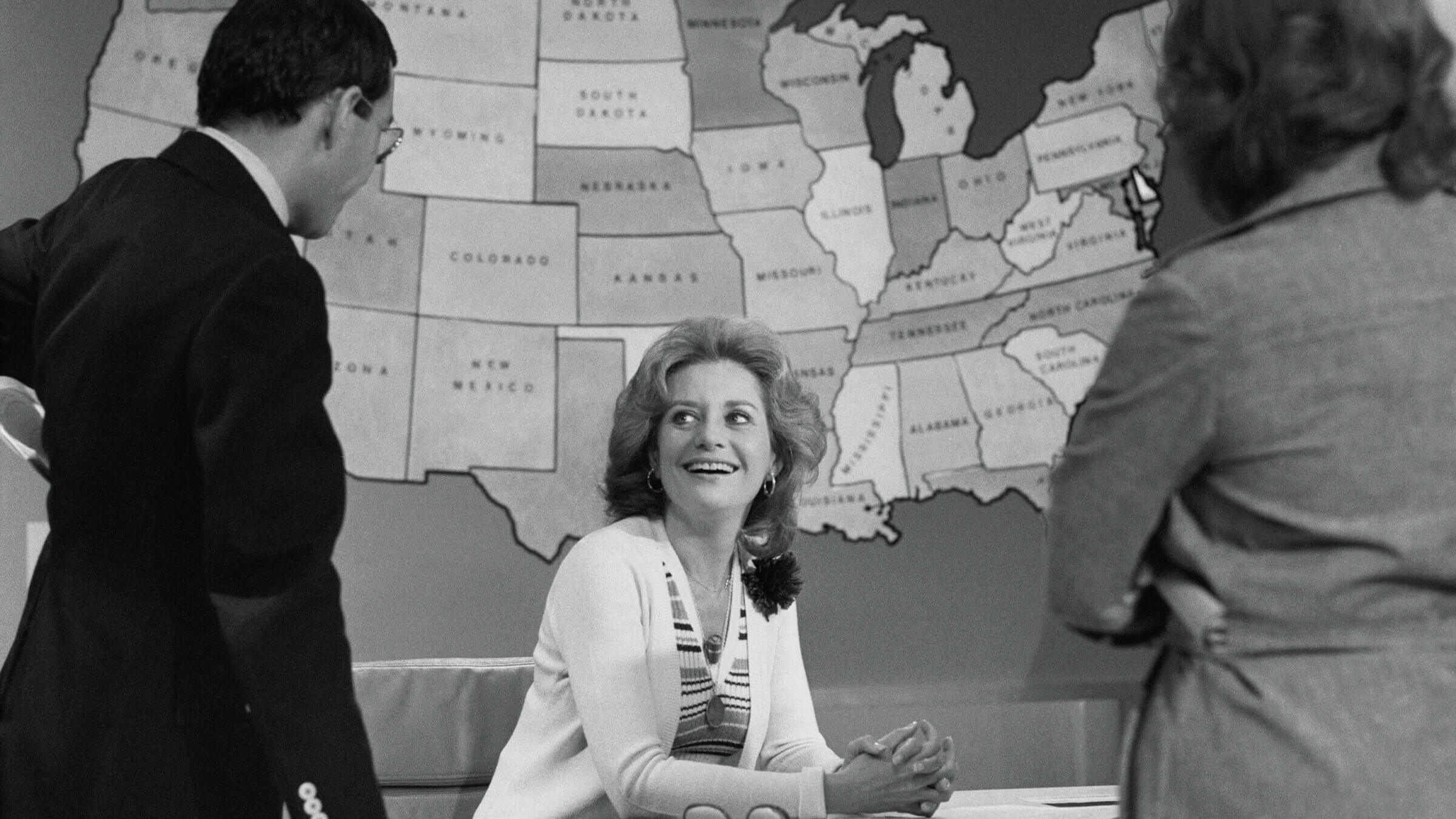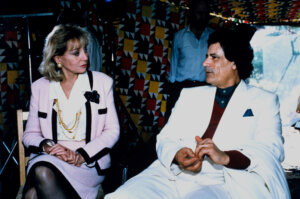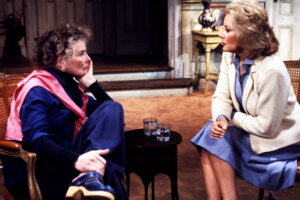Barbara Walters gets the Barbara Walters treatment in new documentary
‘Barbara Walters: Tell Me Everything’ explores Walters’ personal life as well as her career, highlighting a vulnerable side the public rarely saw

Barbara Walters at the National Broadcasting Company’s studio in New York. Courtesy of ABC News Studio
When she broke out on The Today Show in the 60s, Barbara Walters changed the world of news forever, opening doors that had previously been closed to women and taking a different approach to the way news was done. Over 60 years since Walters started her broadcasting career, director Jackie Jensko’s new documentary Barbara Walters: Tell Me Everything explores the misogyny she faced throughout her career and the complicated personal life she navigated alongside it.

The film, which premiered at the Tribeca Film Festival, goes behind the scenes of some of her most notable interviews, including with Muammar Gadaffi, where she famously wore a pink Chanel suit — not the typical outfit many would choose to wear in the Libyan desert. But the film explains that Walters used her appearance as a way to establish her cultural importance, resulting in many iconic outfits throughout her career.
The documentary also highlights her joint interview with Israeli president Menachem Begin and Egyptian president Anwar Sadat in 1977, which, Walters reveals in a voice-over, was actually arranged by Begin himself. Working for ABC during the 1977 interview, Walters was racing to get the scoop before Walter Cronkite of CBS and NBC’s Johnny Chancellor. An archival clip shows the moment of victory, when Sadat, surrounded by security and press, reaches out to shake Walters’ hand first, despite the other men present.
Barbara Walters also goes into the newscaster’s romantic life, including her marriages and affairs. Special attention is paid to her relationship with lawyer Roy Cohn, who helped her father battle tax evasion charges. In addition to archival footage and Walters’ own voice, her colleagues and contemporaries, including Oprah Winfrey, Cynthia McFadden and Bob Iger comment — sometimes disapprovingly — on how Walters’ conducted her romances with Cohn and other men, like Senator Edward Brooke, who was married at the time of their affair.
It was her father’s financial issues that forced Walters to develop an ability to carve her own path in order to survive. Her father, Lou Walters, had been a club owner in New York; his most notable venture was the Latin Quarter nightclub in Times Square. When he eventually lost everything, Walter became the breadwinner in her family during the 1950’s, a time when it was difficult for women to enter the working world. She started at an advertising agency and later transitioned into doing publicity for NBC station WNBT-TV (now WNBC).
In 1961, Walters joined The Today Show to write women’s features, which were often about fashion or commerce, and rarely covered hard hitting news. However, she decided to do her own interviews more aligned to the richer news stories she was drawn to, and began editing her own pieces, working her way up the ladder.
NBC eventually let her do interviews on the Today Show where, in 1971, Walters met the first of what she referred to as “the three big bullies” of her life: Frank McGee, the show’s newly named host. He refused to do joint interviews with Walters unless she agreed to only ask questions after he had been allowed to ask three. (The other two bullies she would meet later in her career, at ABC were Peter Jennings and Harry Reasoner, the latter often refusing to even speak to her when she was in the room. Walter described her time working with him as “the most painful period in my life.”)
At the time, Walters felt like there were no resources for women struggling with workplace misogyny. Instead, she created her own workaround and began to conduct interviews outside of the studio.
Although these interviews started as a way to escape studio restrictions, her on-location interviews with politicians and celebrities became a signature of her show and made her stand out from other programs at the time. At the time, Walters was criticized for talking about celebrities in a news show — people believed it was uncouth to give a pop star the same treatment as a politician.

However, her celebrity interviews quickly became popular. She was able to take audiences behind the scenes of the lives of the wealthy, famous, and powerful — all while talking to them with an unapologetic candor that made stars feel accessible to normal viewers. Walters was clearly ahead of her time; today, celebrity stories are a staple of the modern news landscape. She credited spending time backstage with celebrities at her fathers club with allowing her to see them as normal people, unintimidated by their fame.
Her sharp attitude comes through clearly in the archival footage and the interview audio — not just in the statements she makes about other people, but also in how she talks about herself. Commenting on why she started her career at The Today Show off-camera, she stated: “I wasn’t beautiful and I didn’t pronounce my ‘r’s.” The film includes a number of these moments, where the hard veneer Walters virtually always wore on TV comes down, and her insecurities and vulnerabilities peek through, such as when discussing her miscarriages and her complicated relationship with her adopted daughter, Jackie.
Walters became co-anchor of The Today Show in 1974 after her bully, McGee, died. She served in the role until 1976, when she signed a $5 million news anchor contract with ABC, making her the highest-paid news anchor of the time. In 1997, Walters created the talk show The View which she co-hosted until her retirement in 2014.
In her last episode, the footage of which also serves as one of the closing scenes of the film, dozens of women like Diane Sawyer, Robin Roberts, and Connie Chung, come out to surprise Walters, a strong visualization of all the careers for whom Walters paved the way.
Barbara Walters: Tell Me Everything will be released on Hulu on June 23.
















